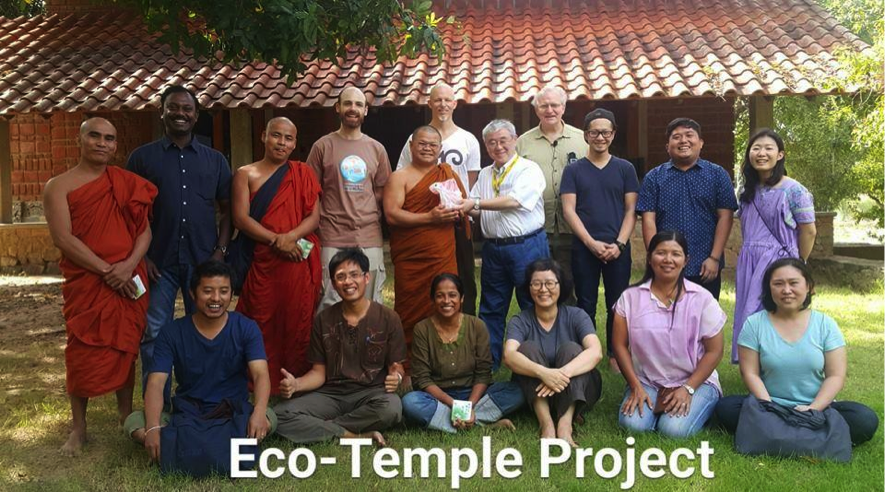History of the Eco-Temple Network
The Eco-Temple Network was originally initiated in 2012 under the name “Interfaith Climate and Ecology Network (ICE)”. This network was formally founded after many years of individual environmental work by members of the International Network of Engaged Buddhists (INEB). These activities which finally lead to the establishment of this new sub-network came from the members’ Buddhist commitments to engage in the suffering we encounter in the world (1st Noble Truth). In this context, it has been the suffering throughout Asia brought about by environmental degradation from the modern industrial development process, such as deforestation and the destruction of numerous habitats.
A critical aspect of this process has been the economic marginalization of rural communities and the exploitation and destruction of their environments for the creation of massive energy projects for the creation of high consumption urban lifestyles – for example massive dams that have relocated hundreds of thousands of people and nuclear power plants that endanger the entire fabric of life in rural areas. As such, INEB members in their environmental activities had started to push deeper into the structural and cultural causes of environmental suffering in their regions (2nd Noble Truth) and articulated alternative visions based on Buddhist teachings (3rd Noble Truth) with activities to realize these visions (4th Noble Truth). The Eco-Temple Network was originally formulated as a plan to bring many of these activities in different regions together to bolster the integrative efficiency of each individual project and support and advance a wider movement among Buddhists, other communities of faith, and wider civil society, business, and governmental initiatives to build sustainable and ecological societies.

The Eco-Temple Working Group was formed at the 2nd international conference of the Eco-Temple Network – formally ICE – in Seoul, South Korea in April 2015. It had emerged as a result of the participation of Rev. Hidehito Okochi of Japan in the 1st Eco-Temple Network conference in Sri Lanka and the aftermath of the Fukushima nuclear incident. Back then, the Japan Network of Engaged Buddhists (JNEB) had created an International Project on Energy to share experiences on nuclear energy among Buddhists and other religious groups in the Global North. In 2012 and 2015 they also conducted two study tours in coordination with INEB for members in the Global South to learn of the activities and the resiliency of Buddhist priests and other civil society groups in Fukushima and to take a deeper look at Rev. Okochi’s own eco-temple communities in Tokyo.
A two-day meeting held just after the INEB General Conference in Sri Lanka in January 2016 was the first time this new Eco-Temple Working Group had an extended period together. They shared their activities and delved deeper into the numerous interconnected issues within the Eco-Temple Network community. In this way, the meeting sought to firstly, share experiences, identify needs, and begin collaboration among core members to support the development of further Eco-Temple communities. Secondly, from this shared knowledge, an Eco-Temple community design scheme was developed, which can serve as a planning tool for other Eco-Temple Network initiatives. The focus did not lie on technology transfer or aid, but rather on sharing perspectives and experiences to empower participants to develop answers in their own localities.
